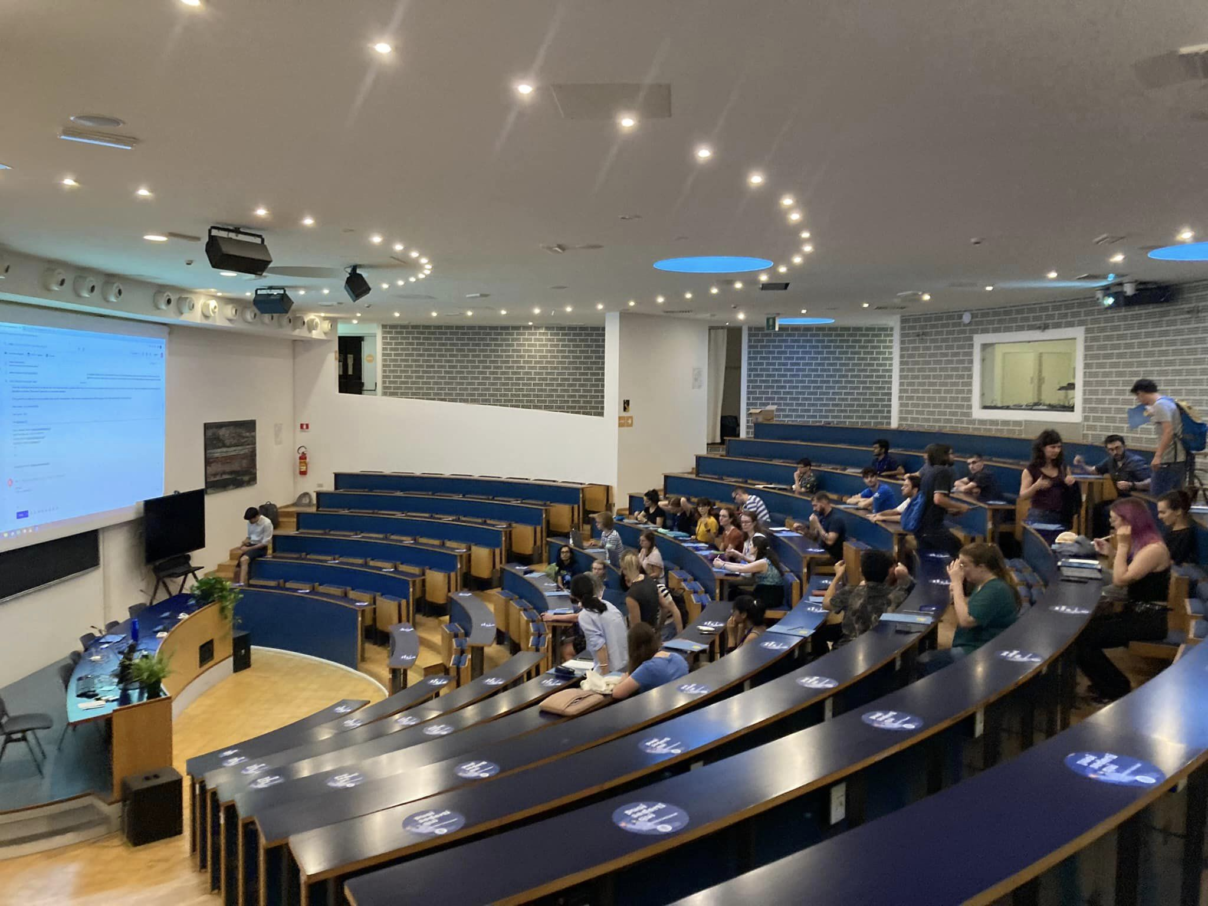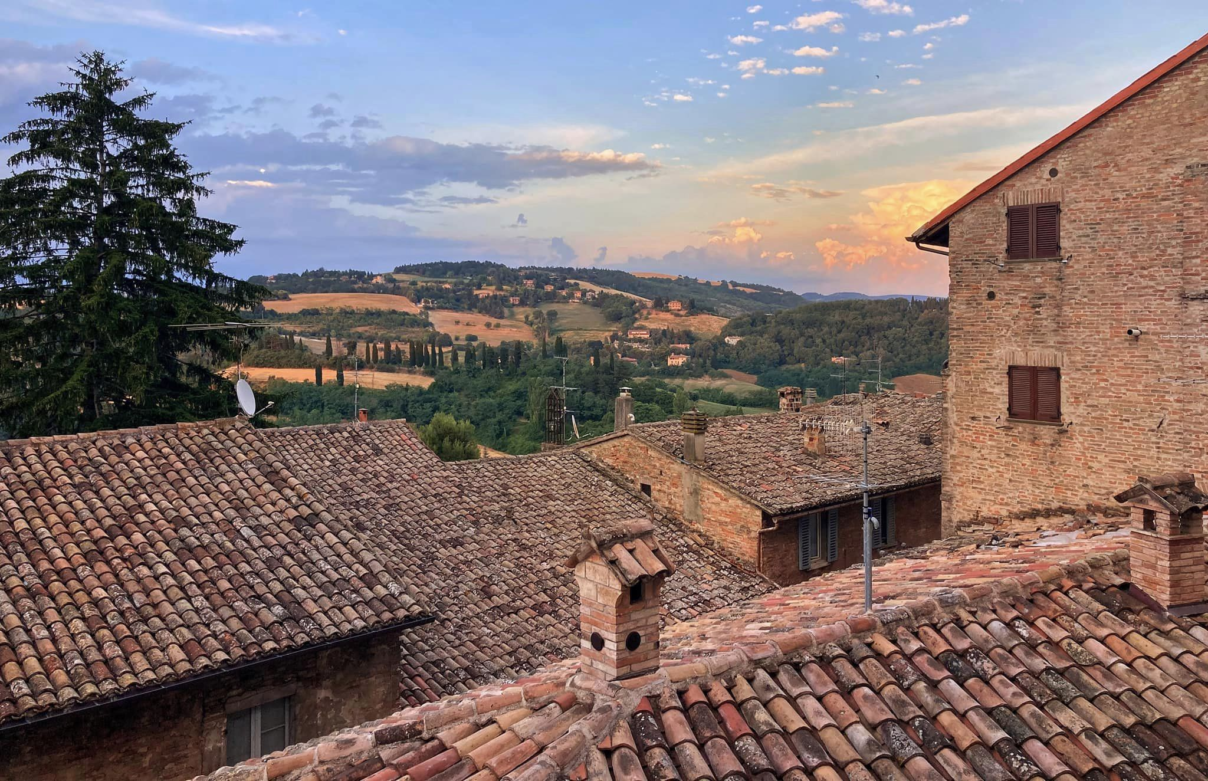Urbino Summer School in Paleoclimatology 2022!
This summer I was very fortunate to attend the Urbino Summer School in Palaeoclimatology. It took place at the University of Urbino, in the city of Urbino, central-eastern Italy. It was two weeks filled with lectures from esteemed professors from all over the world, in the fields of climate modelling, biostratigraphy and climates of the past, and it was an amazing experience.
I had never heard of Urbino before I went, but some of my colleagues who had been to the summer school before warned of how inaccessible it seemed to be by public transport. Feeling prepared, I packed a rucksack and a flight, two trains and a bus later, I made it to Urbino, surrounded by students arriving for two weeks of studying and networking. Sure enough, I was glad to have packed a rucksack, as the cobbles and steep hills in Urbino definitely made pulling a suitcase very hard work! Our cohort stayed in the University’s International College, a lovely old building with amazing views of the city. Urbino is a renaissance gem, deep in the hills of Le Marche and a UNESCO World Heritage Site, known for its steep narrow lanes, spires and a huge defensive fortress up on top of the main hill of the city. Watching the sun rise and set at the end of each day from our bedroom was truly beautiful, there’s nothing quite like Italy in the haze of the summer.

Our summer school was primarily structured around a set of six lectures from 9-12.30pm, a lunch break, followed by a set of afternoon lectures or a workshop building on what we had learnt. In the evening and most break times there were often networking discussions and events surrounding our posters we had been told to prepare before we arrived. I had brought my poster I presented with Yasmin Cole (see ‘The Team’) at ‘BOGS’ in Southampton a few weeks before. Unsurprisingly, my poster seemed to attract a lot of attention from others for its unusual nature, a lot of whom were specialising in diatoms, forams and the climate over a million years ago, nothing as late as the Holocene Period or so unexpected!

My favourite lecture was one from Professor Steven Barker from Cardiff University, who talked about his latest work focussing on carbon cycle mechanisms from the Late Pleistocene to Holocene Period. This was a fascinating lecture on sea ice decline and how this has influenced the climate of the current era and is certainly going to be useful for helping to understand the context of my research. We also spent an amazing few days out in the field, where we saw the K-Pg boundary (the extinction of the dinosaurs event!) which was so inspiring to see in person.


Overall, it was an amazing few weeks and I met a great bunch of people. I’d thoroughly recommend the summer school to anyone, whether a PhD/undergraduate/masters student. Anyone who is interested in climate science and understanding what drives the climate in the past. Or anyone with a far broader interest and are simply just looking to expand their knowledge on this subject. Urbino was a great setting for such a fun summer school, and I have made friends for life. For now, I am currently in the lab processing my vast batch of samples and very much looking forward to my next summer school – hopefully next year!


